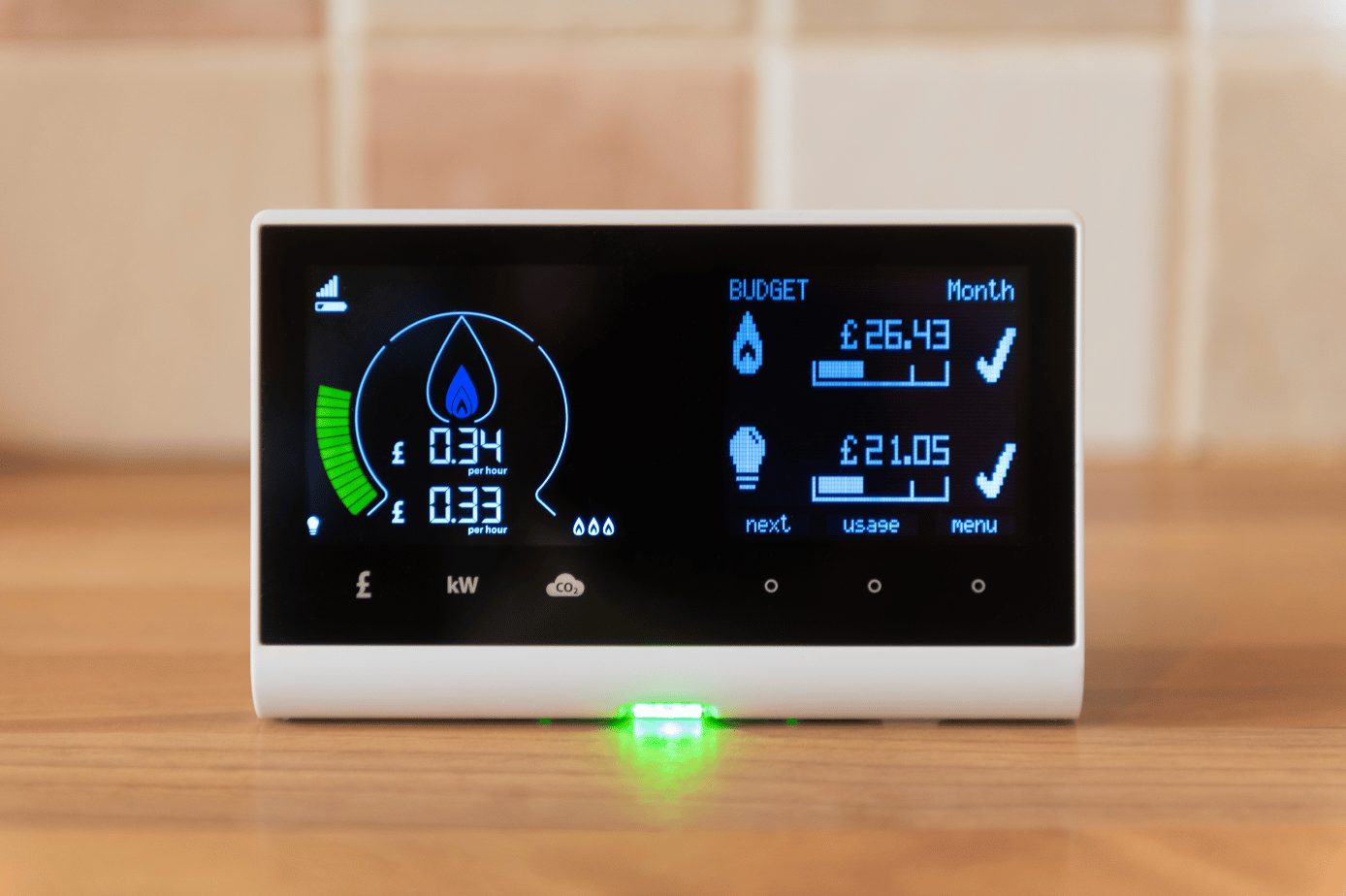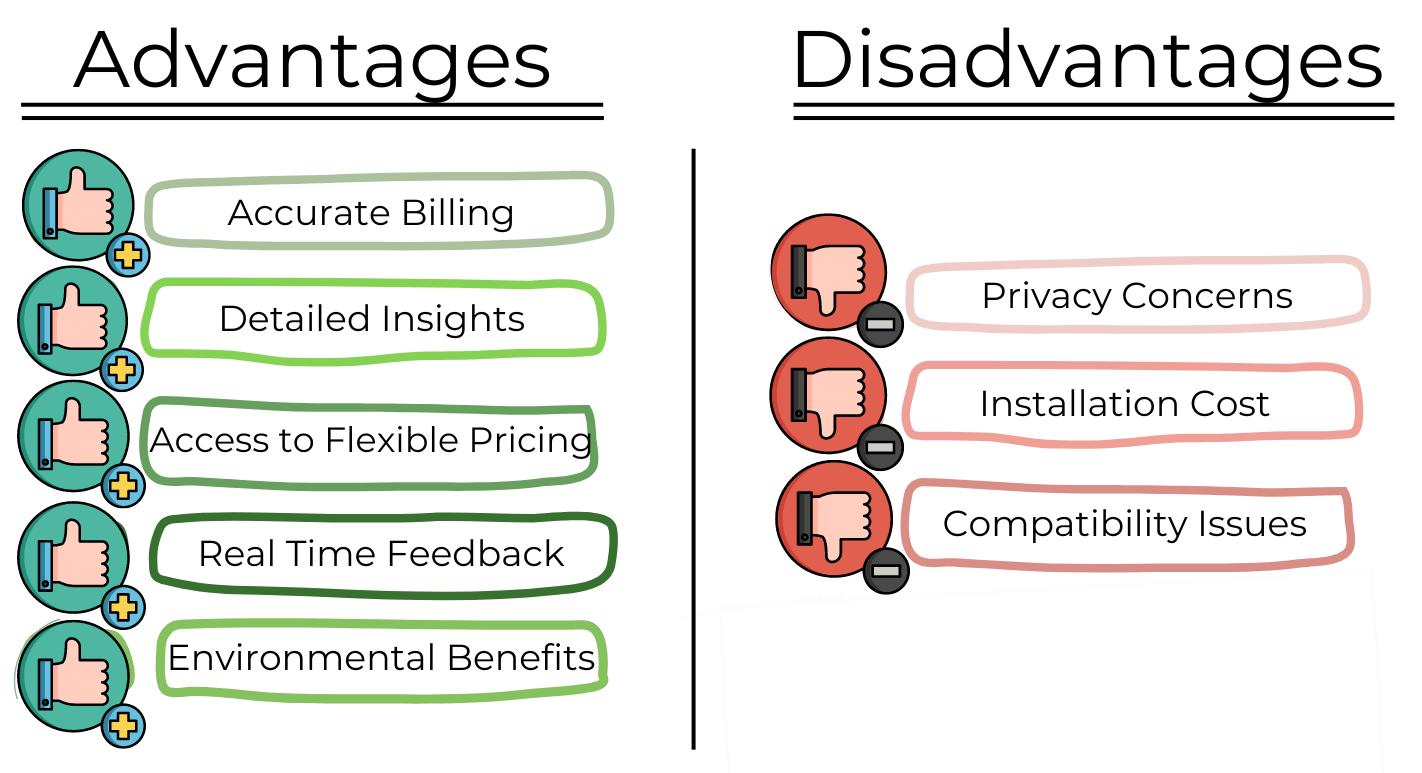What Are Smart Meters And Can They Save You Money?
Are smart meters worth the hype? Can they really help you save money on your electricity bills? If you've heard the reports about smart meters but aren't sure what they are or how they work, you're in the right place.
This guide will explore the world of smart meters, explaining how they work, the advantages they offer, and the potential disadvantages to consider. We'll look at how smart meters can help you understand your energy usage, access flexible pricing plans, and potentially reduce your electricity costs. Whether you're a homeowner, or business owner, this guide will give you the knowledge you need to make informed decisions about smart meters and how they can reduce your energy bills.
What are Smart Meters?
Smart meters are the next generation of electricity meters, designed to replace traditional analog meters. Unlike older models that require manual readings, smart meters digitally record your energy usage in real-time and automatically send this information to your energy provider.
Smart meters provide detailed insights into your electricity consumption patterns. They can track how much energy you're using throughout the day, including peak and off peak times. This data is valuable for both you and your energy provider, as it allows you to make informed decisions about your energy usage and potentially save on your electricity bills.

How Do Smart Meters Work?
Smart meters utilise technology to measure and communicate your energy usage data in near real-time. Here's a breakdown of how they work:
Smart meters use advanced technology to constantly monitor your electricity usage, tracking consumption in 30 minute intervals throughout the day. This detailed data provides so much more than just the total reading that traditional meters give. The collected information is then transmitted wirelessly to your energy provider, which eliminates the need for manual meter readings and ensures accurate billing based on actual usage.
Smart meters facilitate 2-way communication, to allow your energy provider to send signals back to the meter. This allows them to remotely manage your electricity supply, adjust settings, and even offer you tailored pricing plans. Many smart meters also come with a display to go in your home so you can see real time insights into your energy usage, historical data, and estimated costs. This allows you to make informed decisions about your usage habits and potentially save on your energy bills.
Can A Smart Meter Save Me Money?
While a smart meter won't magically reduce your energy bills, it can be a game changer when it comes to finding ways to save. By providing accurate billing based on your actual usage, it removes the guesswork of estimated bills and helps you budget more effectively. These detailed insights into your energy usage, broken down into 30 minute intervals, allow you to find appliances that use a lot of energy or habits that you can change to cut down on usage.
Smart meters also unlock the potential for flexible pricing plans like time-of-use tariffs, which offer lower rates during off peak hours. By changing your energy use to these cheaper time periods, you can potentially make significant savings. The in-home display that often also allows you to see real time feedback on your consumption. Seeing your usage clearly like this, helps promote mindful habits and energy saving changes.
Ultimately, all this data provided by your smart meter can highlight specific areas where you can cut back on energy consumption. You might find some appliances that are surprisingly power hungry or realise you're using more electricity during peak times than you thought. While the potential for savings is substantial, it requires actively engaging with your smart meter data and making conscious decisions about your energy use.
Advantages and Disadvantages of Smart Meters
Smart meters bring heaps of benefits to the table, but they aren't without their potential downsides. On the plus side, they offer accurate billing by removing the old school estimations, ensuring you only pay for what you actually consume, and encouraging better budget management.
Detailed insights into your energy usage patterns, allow you to identify peak times and potential areas for energy savings. Also, smart meters give you the option to change to flexible pricing plans, like time-of-use tariffs, which lower your power bills by changing your energy use to off-peak hours. The real time feedback on your energy consumption can increase your awareness and motivate energy saving behaviours, to reduce your carbon footprint and live a more sustainable lifestyle.
However, smart meters can also raise some concerns. Some people worry about the data collected and how it's used, although strict privacy regulations govern energy providers to protect consumer information. There is also the initial installation of a smart meter which might incur a cost, though many providers offer them for free as part of an upgrade program. It's worth noting that the potential savings from a smart meter might be less noticeable for those with a low energy consumption already.
At the end of the day, the decision of whether to embrace smart meters depends on weighing up these advantages and disadvantages against your household’s, or business’, individual needs.

Are Smart Meters Compulsory?
Smart meters have become the standard for new and replacement meters across Australia. Since December 2017, smart meters have to be installed in all new homes and as replacements for faulty or outdated meters.
If you have a traditional meter, there's no obligation to upgrade to a smart meter. However, if your current meter needs replacing, it must be replaced with a smart meter. This move is in line with the Australian Energy Market Commission's recommendation for a complete transition to smart meters by 2030.
Ready to upgrade to a smart meter? Contact Urban Energy today on 0478 101 304 to learn more about upgrading your home or business and start saving on your energy bills.

